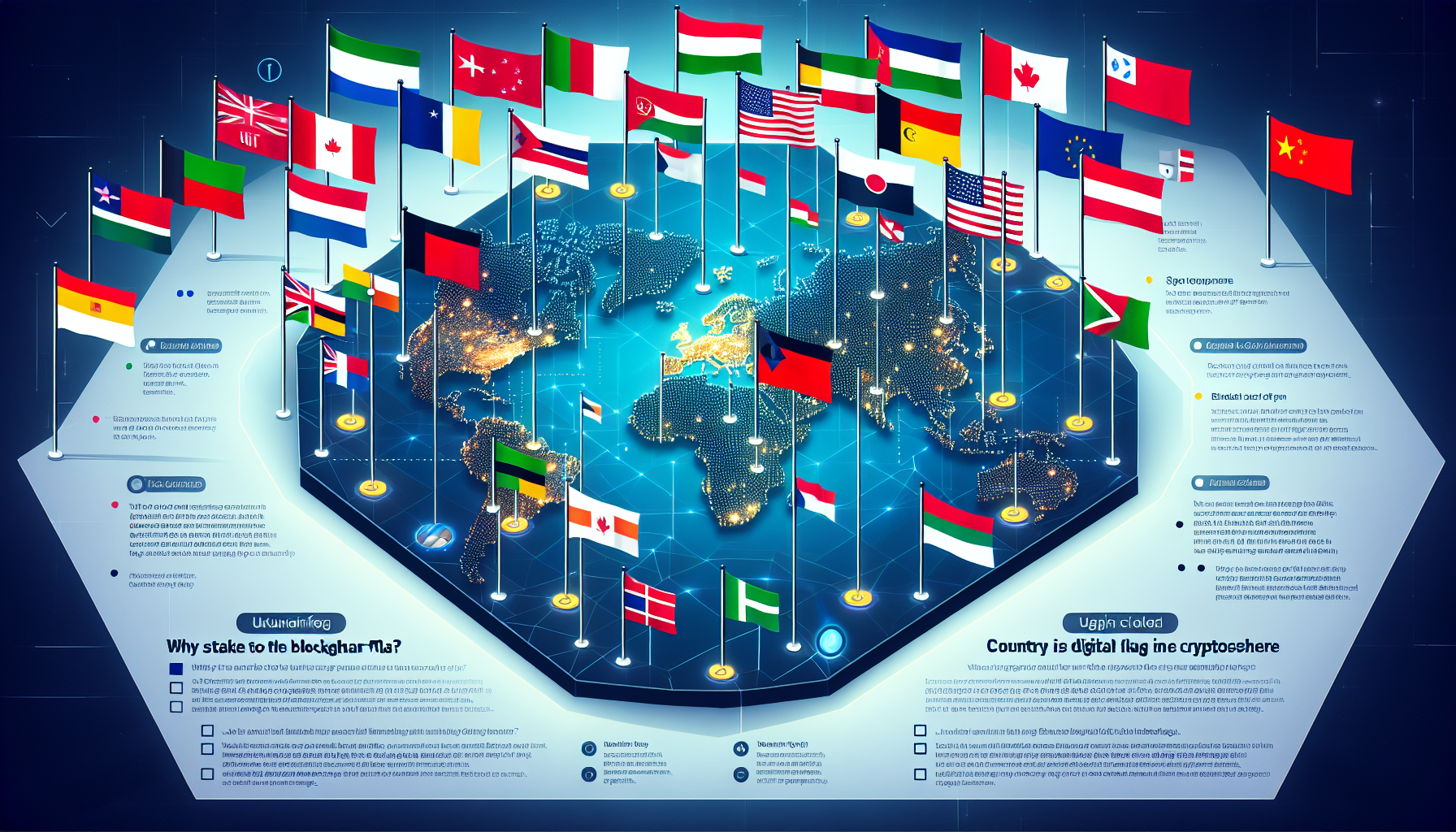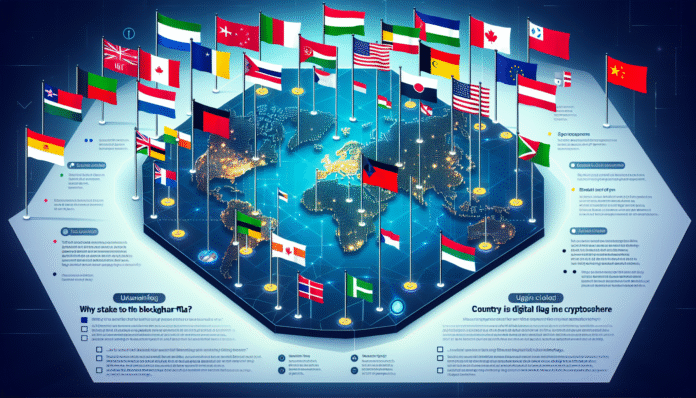In just over a decade, blockchain technology has evolved from a fringe fascination among cryptographers to a global economic force. While cryptocurrencies like Bitcoin and Ethereum often dominate headlines, the real revolution lies in the underlying tech: blockchain. From finance to healthcare, from governance to supply chains, countries around the world are betting big on blockchain—and how they do it could shape the future of our digital lives.
Here are some of the top nations leading the charge—and why it matters.

1. China: The State-Led Blockchain Giant
China may have cracked down on crypto trading and mining, but it’s not turning its back on blockchain—in fact, quite the opposite.
Why It Matters:
China is spearheading one of the world’s most ambitious state-led blockchain initiatives: the Blockchain-based Service Network (BSN). Designed to serve as a global infrastructure for blockchain development, the BSN supports multiple protocols and aims to make decentralized tech more accessible.
Moreover, China is a global leader in Central Bank Digital Currency (CBDC) development, with its digital yuan (e-CNY) already in pilot use across multiple cities.
What’s at stake: If China’s blockchain vision succeeds, it could set a precedent for state-controlled decentralized infrastructure—an ironic but powerful blend of control and innovation.
2. United Arab Emirates (UAE): Blockchain for Smart Governance
The UAE isn’t just dabbling in blockchain—it’s embedding it into its national transformation plans.
Why It Matters:
Through the UAE Blockchain Strategy 2021, the country aimed to move 50% of government transactions to blockchain platforms. Dubai, in particular, is developing into a global Web3 hub, attracting startups, investors, and crypto exchanges with its progressive regulations.
The government is also using blockchain for land registry, digital identity, and visa processing—cutting bureaucracy while increasing transparency.
What’s at stake: The UAE’s approach shows how blockchain can redefine the relationship between governments and citizens, offering a blueprint for “smart governance” around the world.
3. Estonia: The Digital Pioneer
Often hailed as the most digitally advanced country in the world, Estonia has been a quiet powerhouse in blockchain adoption.
Why It Matters:
Estonia has integrated blockchain into healthcare, judicial systems, security, and data registries. Its digital identity infrastructure, launched in the early 2000s, now benefits from blockchain’s tamper-proof architecture, ensuring secure access and data integrity.
What’s at stake: Estonia’s experience proves that blockchain isn’t just hype—it can function as a core part of a national digital infrastructure that boosts efficiency and trust.
4. Switzerland: The Crypto Valley
Switzerland, particularly the region of Zug, is home to one of the most vibrant blockchain ecosystems in the world.
Why It Matters:
The country’s regulatory clarity, business-friendly policies, and data privacy laws make it a haven for blockchain startups and crypto companies. It was among the first to recognize cryptocurrencies as legal assets and has allowed for tax payments in Bitcoin in some cantons.
What’s at stake: Switzerland is showing that with the right regulatory approach, blockchain can thrive without compromising legal or financial stability.
5. Singapore: Asia’s Web3 Gateway
Singapore has positioned itself as a global innovation hub for fintech and blockchain.
Why It Matters:
Its central bank, the Monetary Authority of Singapore (MAS), has launched initiatives like Project Ubin (blockchain-based interbank payments) and Project Guardian (tokenized finance). The country’s balanced regulatory framework welcomes innovation while protecting investors.
What’s at stake: Singapore’s strategy demonstrates how public-private collaboration can unlock the full potential of blockchain across financial and non-financial sectors.
Honorable Mentions:
- India: With mixed signals on crypto regulation but a strong push for blockchain in supply chain and governance.
- Brazil: Experimenting with a digital real and using blockchain for public services transparency.
- South Korea: Investing heavily in blockchain for gaming, digital identity, and finance.
Why This Global Race Matters
Blockchain isn’t just about decentralizing finance—it’s about reimagining how societies operate in a digital-first world. Countries that invest early in blockchain infrastructure, education, and policy stand to gain:
- Increased transparency and trust
- Improved efficiency and security
- Global competitiveness in tech and finance
- Resilience against cyber threats and fraud
As with any transformative technology, the stakes are high. The nations leading the blockchain race aren’t just shaping their own futures—they’re influencing global standards for how this revolutionary tech is used, governed, and scaled.
Final Thoughts
Whether it’s through government innovation, private sector momentum, or a blend of both, the blockchain revolution is already underway. The question isn’t whether blockchain will change the world—but who will lead that change. And right now, these countries are showing us the way.








